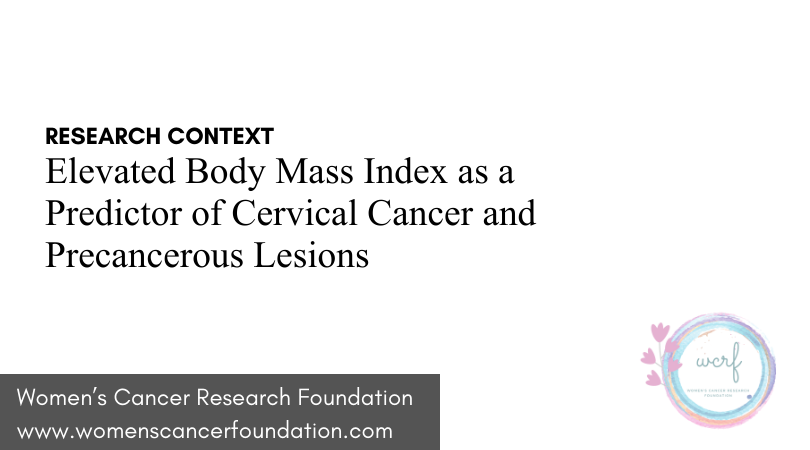The Crucial Link Between Diet and Cancer Prevention
- Women's Cancer Research Foundation

- Mar 4, 2025
- 3 min read

Understanding the Impact of Nutrition on Cancer Risk
It's widely acknowledged that our dietary choices play a significant role in our overall health, but did you know that what you eat can also influence your risk of developing cancer? Numerous studies have shown that diets high in energy and fat can lead to obesity, which is associated with an increased risk of several types of cancer. Conversely, a diet rich in a variety of nutritious foods might not only keep you healthier but also help in preventing cancer.
The Power of the Five Food Groups
Incorporating a diverse range of foods from all five food groups—fruits, vegetables and beans, lean meats and fish, grains, and dairy products like cheese and yogurt—is fundamental to maintaining a balanced diet. This variety not only provides essential nutrients necessary for optimal body function but also introduces antioxidants and other cancer-fighting substances into the body. By consuming a well-rounded diet, you're not only promoting good health but also significantly reducing your disease risk.
A diet rich in a variety of nutritious foods might not only keep you healthier but also help in preventing cancer.
Diet and Lifestyle: Key Players in Cancer Prevention
Diet is among the critical lifestyle factors influencing cancer risk. For instance, processed meats such as bacon contain nitrates, substances linked to an increased risk of colon cancer when consumed frequently. It's crucial to understand that while certain foods can influence cancer risk, no food can outright cure cancer. Other lifestyle factors like smoking, alcohol consumption, sun exposure, and physical activity levels also play significant roles. Moderation in alcohol intake, for example, can decrease the likelihood of developing cancers of the mouth, throat, esophagus, and more.
Maintaining a balanced diet fundamentally involves including a variety of foods from all five food groups.
Foods That Protect Against Cancer
Research has highlighted that certain foods have potent anti-cancer properties. Raw and cruciferous vegetables like broccoli, cabbage, and Brussels sprouts, as well as tomatoes and citrus fruits, are noted for their strong protective effects against cancer. These foods contain vital nutrients and antioxidants that help shield cells from damage and prevent tumor growth.
Reducing alcohol consumption can lower the risk of developing cancers in the mouth, throat, esophagus, and other areas.
The Truth About Supplements in Cancer Prevention
While nutrients from food are beneficial, the efficacy of these same nutrients as supplements in cancer prevention remains debatable. High doses of supplements such as beta-carotene have been found to potentially increase cancer risk, particularly lung cancer in smokers, rather than providing the expected protective effect.
Supporting Cancer Research Through Your Contributions
At the Women’s Cancer Research Foundation, our dedicated research into breast and gynecologic cancers has significantly improved treatment outcomes, surpassing national average cure rates. We rely on the generous donations from our supporters to continue this vital work. By contributing, you are directly supporting groundbreaking research that saves lives and improves treatment methods. We invite you to join our mission by making a donation today and help us continue making strides in cancer research.
Your support makes a difference in the lives of countless women and advances our understanding of effective cancer treatments. Together, we can continue to push the boundaries of what's possible in cancer care.
About Women’s Cancer Research Foundation:
The Women’s Cancer Research Foundation (WCRF) is one of the most active research organizations in the nation. We are dedicated to studying and evaluating novel treatments for women afflicted with breast, ovarian, endometrial, and cervical cancers. The WCRF persistently endeavors to make a difference in women’s lives by offering them hope, strength, and progress.
Laguna Beach, CA 92651
PH: (949) 642-5165
Follow Us On Social Media:












Comments